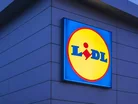Lidl's climate targets and carbon neutral ambition

Discount retailer Lidl has announced its aim to reduce CO2 emissions from its own operations.
By 2030, Lidl aims to reduce its operational emissions by 80% across all 32 countries it operates in.
Lidl lowering prices and carbon emissions
To achieve this, Lidl will focus on cutting carbon emissions across its retail stores and distribution centres in a number of ways:
- Solar panel installation on all new stores, where possible
- Improving overall energy efficiency through investment in the latest refrigeration and lighting technologies
- Lidl will operate 350 electric vehicle charging points at its stores by 2022
- The company will also oblige suppliers, representing 75 % of product-related scope 3 emissions, to commit to their own climate protection targets according to the methodology of the Science Based Targets initiative, by 2026
- Lidl will continue to support farmers in Lidl GB’s Grassroots programme, to conduct develop carbon reduction plans.
Lidl’s ambitious targets to make a significant contribution
Lidl has been building partnerships with other suppliers to boost sustainability, such as its initiative with Wyke Farms to produce a supermarket-first carbon neutral cheddar and Lidl’s commitment to ban peat from its compost range by 2022.
“With the UK hosting COP26 in November, this is a crucial year in the fight against climate change and we recognise our responsibility to reduce our emissions to help tackle this important issue”, said Christian Härtnagel, CEO at Lidl GB. “As part of the Schwarz Group, Lidl has a presence in 32 countries around the world and more than 310,000 employees globally. We’re therefore one of Europe’s largest retail businesses and through these ambitious targets we hope to make a significant contribution by not only rapidly decarbonising our own operations but also supporting our suppliers to do the same. As a discounter, it is ingrained in us to be constantly looking to maximise efficiency and reduce waste. Whether it’s how we heat and light our stores, or how we transport food from our suppliers to our warehouses, we are continuing to find ways to cut emissions across our business.”



